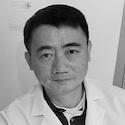You are here
Synthetic Biology

Illinois Ignite 2020 has ended. However, if you are interested in seeing the recording of a presentation(s), please email Nicole Nair, nnair@illinois.edu

Cell-Free Systems for Portable, On-Demand Bio Manufacturing, Molecular Sensing, and Education
Michael Jewett seeks to re-conceptualize the way complex biological systems can be re-engineered for compelling applications in medicine, materials, and energy by transforming biochemical engineering with synthetic biology. He has co-founded four startups, one of which is SwiftScale Biologics. SwiftScale utilizes a cell-free platform to rapidly manufacture glycosylated protein drugs such as therapeutic antibodies. Prof. Jewett was a Finalist for the Blavatnik National Awards for Young Scientists, Life Sciences Category in 2019 and recipient of the Biochemical Engineering Journal Young Investigator Award in 2018 and the ACS Biochemical Technologies Division Young Investigator Award in 2017 among many awards.
Start-ups: SwiftScale Biologics -- uses an innovative development and manufacturing platform that can significantly accelerate the normal timelines for translation of biologics
Design Pharma -- provides direct biosynthetic access to small molecule therapeutics in microbiomes

Photosynthesis Re-Design
Stephen Long heads RIPE (Realizing Increased Photosynthetic Efficiency), an international project funded by the Bill & Melinda Gates Foundation to improve the crops that feed many of the poorest in the world. A Fellow of the Royal Society of London in 2013, Dr. Long has been recognized by Thomson Reuters as a highly cited researcher in the field of plant and animal science every year since 2005. He has given briefings on food security and bioenergy to the U.S. president, the Vatican, and to Bill Gates. Speaking on the discovery of a way to engineer photosynthesis that resulted in a 20% increase in crop productivity.

The Designer Ribosome For Synthesis of the Designer Proteins
Alexander Mankin’s research has been focused on elucidating the structure and functions of the ribosome, understanding the mechanisms of action of ribosome-targeting antibiotics and operation of the resistance mechanisms. An important part of the research has been ribosome engineering. His lab was among the first to succeed in reconstituting an active large ribosomal subunit (from Thermus thermophilus) using in vitro-transcribed 23S rRNA. Recently, were able to generate the ribosome with tethered small and large subunits based on a hybrid between 16S rRNA and circularly-permuted 23S rRNA. In the course of his studies he has generated many resources and techniques, which are widely used in research laboratories in academia and pharmaceutical industry.

Synthetic DNA Algorithms for Cells
Brad Merrill has a broad and longstanding fascination with how an animal’s genome provides a set of instructions that is sufficient to guide an embryo during its development to a new organism. Recently his group has endeavored to engineer ways of generating synthetic sets of instructions to direct new cell-autonomous behaviors in mammalian cells.
Startup: Cellgorithmics – uses a novel CRISPR based technology that can drive multiple cellular activities to be played out in a preprogrammed, sequential, order of events. Such cellular algorithms are encoded by simple DNA-based instructions and can act at virtually any desired location in the cell’s genome by virtue of the targeting flexibility inherent to RNA-guided nucleases.

Skin Engineering with Epidermal Stem Cells
Xiaoyang Wu’s research is dedicated to understanding the dynamics, signaling, and clinical applications of epidermal stem cells. He is using genetically modified skin as an engineering platform to provide a solution for diseases beyond skin disorders. He is the founder of two companies, GeCell Therapeutics and Maponos Therapeutics, and recipient of the 2012 V scholar award.

